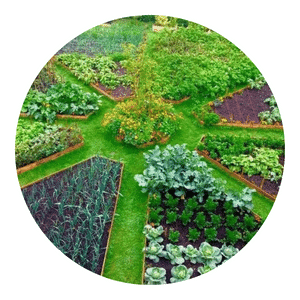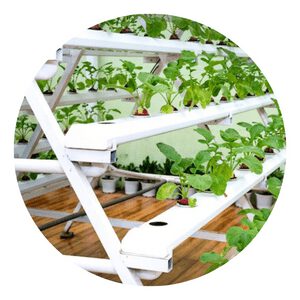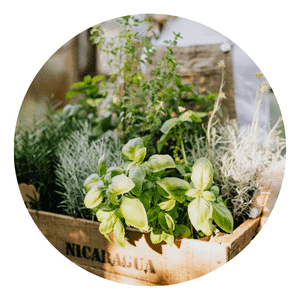Organic Gardening: Myths and Facts
Organic gardening has become increasingly popular in recent years as more and more people are looking for ways to grow produce without using harsh chemicals.
With the rise of this trend, however, have come a number of myths about organic gardening that need to be debunked.
This article will explore some of the most common myths about organic gardening and provide an explanation of why they are untrue.
It will also look at the facts behind organic gardening and explain why it is such a beneficial practice.

Organic Menu
Lorem ipsum dolor sit amet, consectetur adipiscing elit. Ut elit tellus, luctus nec ullamcorper mattis, pulvinar dapibus leo.
Organic Gardening Basics
Organic gardening is a popular way to grow plants and vegetables without the use of chemical fertilizers or pesticides.
It’s a great way to get involved with nature, while also producing fresh, healthy food for your family.
Despite its many benefits, there are still some myths about organic gardening that can cause confusion for new gardeners.
Organic gardening involves using natural fertilizers such as compost or manure instead of chemical fertilizers.
This helps keep the soil healthier by providing essential nutrients and preventing nutrient loss due to runoff.
Additionally, organic gardeners avoid using synthetic pesticides in order to reduce environmental damage caused by these chemicals and help maintain biodiversity within their gardens.
Myth 1: Organic is Harder
Organic gardening is a popular choice for many gardeners due to the numerous benefits it provides.
But, there are some common myths about organic gardening that may be preventing others from giving it a try.
The first of these myths is that organic gardening is harder than traditional or chemical gardening.
This simply isn’t true; in fact, many experienced gardeners find that organic methods are less time consuming and more rewarding overall.
Organic methods provide multiple advantages over chemical-based approaches, including improved soil health and better fertility levels due to the use of natural fertilizers, composts and mulches.
These all help create a healthier environment for plants and beneficial insects, which aids in pest control as well as providing an abundance of nutrients to nourish the plants.
Organic gardening is tilled with myths, And facts that only the wise can see, But I'm here to set them both apart, So listen closely and you'll agree. 'Organic is expensive' some say, As they try to keep their wallets closed, When in fact it's often cheaper than conventional fare- If you grow it yourself you will never be disposed. Another myth's that it takes longer For plants to reach maturity - High yield crops are possible, no matter the approach. You just have to wait patiently. The truth of organic gardening lies in the soil we seek; Let its richness nourish each node as
Chappy The Gardener
Myth 2: Organic is Expensive
In reality, organic gardening can be quite cost effective when compared to traditional methods of chemical-based fertilizers and pesticides.
Organic soil amendments such as compost or mulch are often cheaper than synthetic alternatives, and seeds or starter plants for growing fruits and vegetables organically may have lower prices than those grown with additives.
Additionally, over time costs can be reduced by reusing containers or creating homemade composting systems instead of purchasing them each season.
Fact 1: No Pesticides
Fact 1: No Pesticides. Organic gardeners never use synthetic pesticides on their plants, as these products can be toxic for both humans and the environment.
Instead, they rely on tools such as companion planting, crop rotation and natural pest control methods to keep insects at bay while preserving soil fertility and biodiversity.
Natural predators like ladybugs and birds help fight off harmful pests without resorting to potentially dangerous chemicals.
Additionally, organic gardeners are careful not to overuse water resources by creating a landscape design that eliminates runoff into nearby waterways whenever possible.
Fact 2: Better Nutrition
Organic gardening is an environmentally friendly and health-conscious way to grow vegetables.
The process involves the use of natural methods to promote healthy growth while avoiding chemicals that can be hazardous to both people and the planet.
One of the most common myths about organic gardening is that it limits nutrition, but this isn’t true! In fact, there are numerous reasons why organic produce can be nutritionally superior.
First, soil conditions have a major impact on nutrient levels in a garden.
Soil in an organic garden is often more rich than non-organic gardens due to fertilizers like compost or manure which provide essential minerals for plant growth.
Plus, when these natural fertilizers are used regularly and carefully monitored, they don’t need additional chemical additives which can disrupt nutrient availability in soil.
Fact 3: Sustainable Soils
Organic gardening is a popular gardening technique that has many advantages for the health of your garden, as well as for the environment.
While there are many myths surrounding organic gardening, it’s important to understand some facts about this practice.
In particular, fact 3 focuses on sustainable soil practices used in organic gardening.
In order to provide optimal growth conditions for plants and ensure sustainability of their gardens, those who practice organic gardening must pay careful attention to their soils.
This involves understanding how pH balance and other nutrient levels can affect plant health, as well as what types of materials can be used to improve soil fertility.
Organic gardeners also strive to use cover crops and mulch in order to maintain healthy soils over time and prevent erosion.
Additionally, they may choose particular species or cultivate certain types of compost specifically designed for promoting sustainable soil practices.
Benefits of Organic Gardening
Organic gardening is becoming increasingly popular, as more people are looking for ways to reduce their environmental impact.
This type of gardening focuses on growing plants and vegetables without the use of synthetic materials or chemicals.
While organic gardening has numerous benefits, there are also several myths about it that need to be addressed.
This article will explore the facts and myths about organic gardening in order to help people make informed decisions when deciding to start a garden of their own.
Organic gardening has many benefits compared to traditional methods. It is environmentally friendly, as no chemical pesticides or fertilizers are used with this method of growing plants.
Furthermore, organic produce contains significantly higher levels of vitamins and minerals than conventional crops due to the lack of synthetic additives present in non-organic foods.
In conclusion, organic gardening is an excellent way to cultivate the healthiest and most delicious food possible.
It doesn’t have to be expensive or time consuming, and it can be just as effective as conventional gardening methods.
Understanding the myths and facts of organic gardening allows us to make informed decisions about how we want to grow our food.
With a little knowledge and practice, anyone can become a successful organic gardener.
Click To Grow
Helps Us Grow – Share If You Like















